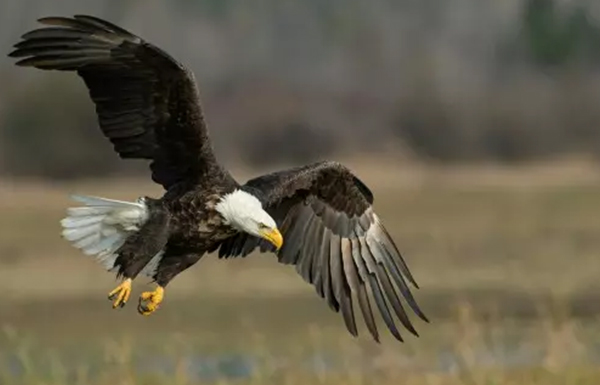Have you ever looked up at the sky and watched a magnificent eagle soar with a sense of pure awe? It’s easy to feel a powerful connection to these majestic birds. Their grace and freedom are truly captivating.
Perhaps you’ve even dreamed of sharing your life with one. You might be wondering, “can you have a pet eagle?” It’s a question many people ask, driven by a deep love for these incredible creatures. But before you get carried away with the idea, it’s crucial to understand the rules. Let’s explore what it takes to own one and what the law says about it.
The Reality of Owning a Pet Eagle
As much as we love animals, some species just aren’t meant to be pets. Eagles are a prime example. They’re wild animals with complex needs. For instance, they need huge territories to hunt and live freely. Furthermore, they are apex predators. Their natural instincts are very different from a domesticated animal like a cat or a dog.
Keeping a pet eagle would mean denying it a natural life. This isn’t just unethical; it’s also incredibly difficult. Their powerful talons and sharp beaks are designed for survival in the wild.
The Myth of a “Tamed” Eagle
While some people train eagles for falconry, this is very different from keeping a pet. Falconry involves a deep, respectful partnership. The bird is still wild, but it’s trained to hunt with a human partner. It’s never kept in a small cage or treated like a typical house pet.
Therefore, the idea of having a pet eagle to cuddle or hang out with is a complete fantasy. These are wild predators, not friendly companions.
Is It Illegal to Own a Bald Eagle?
You might specifically be curious, “is it illegal to own a bald eagle?” The answer is a resounding “yes” in most countries. In the United States, for example, the Bald and Golden Eagle Protection Act makes it a serious crime. This law protects bald eagles and golden eagles. It prohibits owning, taking, or harming these birds without a permit.
Similarly, the UK has very strict laws under the Wildlife and Countryside Act. These laws protect all native wild birds, including eagles. It’s a way to safeguard these species from harm and exploitation.
The Situation in the UAE
In the UAE, the rules are just as strict. The country’s strong commitment to wildlife conservation means that owning wild birds is illegal. The Federal Law No. 24 of 1999 protects endangered and threatened species.
Therefore, it’s clear you cannot have a bald eagle as a pet in this region. This also applies to other species, like the white-bellied sea eagle. These majestic birds deserve to live in their natural habitats.
Why Eagles Make Bad Pets
Eagles simply don’t belong in a home. They have very specific dietary needs, for one thing. They must eat fresh meat, often prey animals. Plus, their enclosures would need to be massive. They need room to stretch their wings and fly. You would need a highly specialized aviary. An ordinary garden shed just won’t do the trick.
Moreover, they are highly sensitive creatures. The constant noise and presence of humans would cause them immense stress. A stressed eagle can become aggressive or sick. The simple truth is, we shouldn’t attempt to domesticate them.
What About Other Birds of Prey?
Maybe you’ve heard of people keeping other birds of prey. Falcons and hawks are sometimes kept for falconry. However, even this requires special licenses and deep knowledge. It’s not a casual hobby.
Furthermore, it’s not the same as having a pet eagle. These birds are still wild at heart. Their ownership is highly regulated everywhere in the world. The regulations exist for a reason. They protect both the birds and the public. You must respect wildlife and their well-being.
Respecting Wildlife is Key
It’s natural to want to get closer to the animals we admire. Yet, the best way to show our love for eagles is to admire them from afar. We can support wildlife conservation groups instead. We can help protect their natural homes. This is the truest form of love and respect. Thus, let’s keep these incredible birds where they belong: soaring high above us in the wild.

https://shorturl.fm/HAnZY
https://shorturl.fm/yjwxq